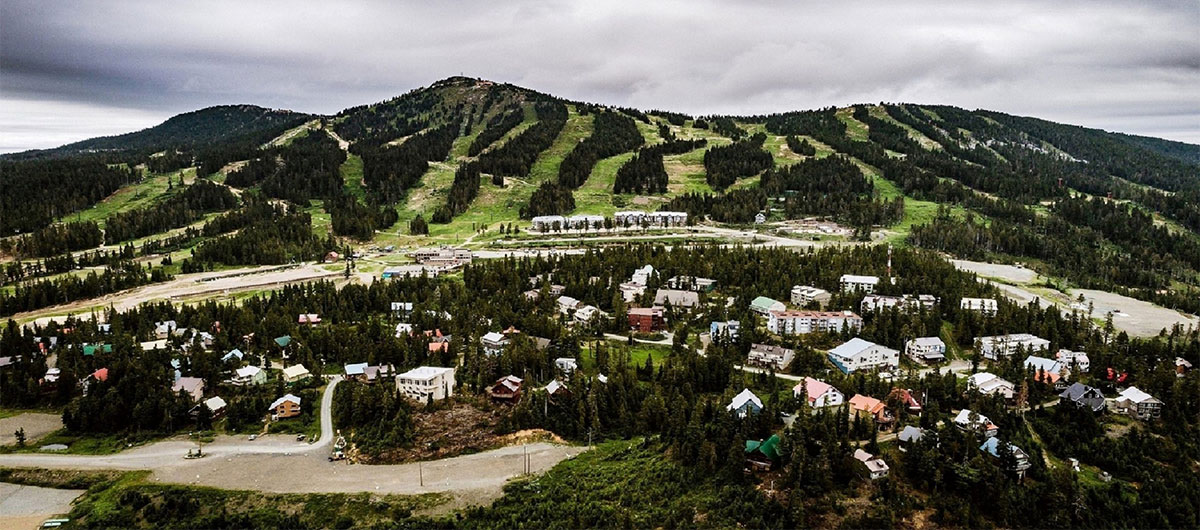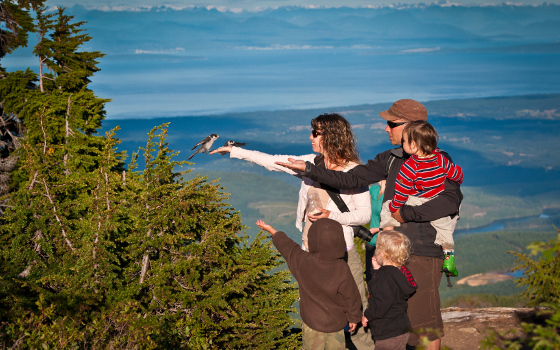Alpine Experiences
SUBLIME HIKING IN BC’S OLDEST PROVINCIAL PARK
Strathcona Provincial Park, designated in 1911, is the oldest provincial park in British Columbia. Located almost in the centre of Vancouver Island, Strathcona Park is a rugged mountain wilderness comprising more than 250,000 hectares. Mountain peaks – some perpetually mantled with snow – dominate the park. Lakes and alpine tarns dot a landscape laced with rivers, creeks and streams. Summer in Strathcona is usually pleasantly warm, while winters are fairly mild except for the higher levels, where heavy snowfalls are the norm. From November through March, snowfalls can be expected on the mountain slopes and alpine plateaus. Snow remains all year on the mountain peaks and may linger into July even at moderate elevations. Summer evenings, as elsewhere in the coastal regions of B.C., can be cool and rain can be expected at any time of the year.
To discover more about the trails and current conditions in Strathcona, please click here.


MOUNT WASHINGTON ALPINE RESORT

Simply put, Mount Washington Alpine Resort is Vancouver Island’s snow magnet! Canada’s deepest all-natural snowpack can be found here, where 11 metres of the fluffy white stuff pile up each winter. Bordering Strathcona Provincial Park, BC’s oldest park, and overlooking the Pacific Ocean, the resort is an enviable position geographically. Unparalleled views exist from the top of the mountain, with the green Comox Valley down below and the blue waters of Georgia Strait in the background.
With year-round operations, the mountain provides a plentiful mix of tree skiing, chutes, alpine bowls, terrain parks and intermediate cruisers which cater to the region’s skiers and boarders in winter. Mount Washington is also home to the Raven Lodge, the flagship facility for one of North America’s finest cross-country skiing destinations. In summer, the Eagle’s Flight ZipTour, a mountain Bike Park, stunning scenic chairlift rides and dining options make for an unforgettable day with views that are simply out of this world!
From shopping to hosting major events all year, Mount Washington Alpine Resort really does offer it all and the resort community surrounding the mountain operation shares a keen passion for alpine outdoor recreation.
To see hours of operations, facilities, activity bookings and more, visit MountWashington.ca.

